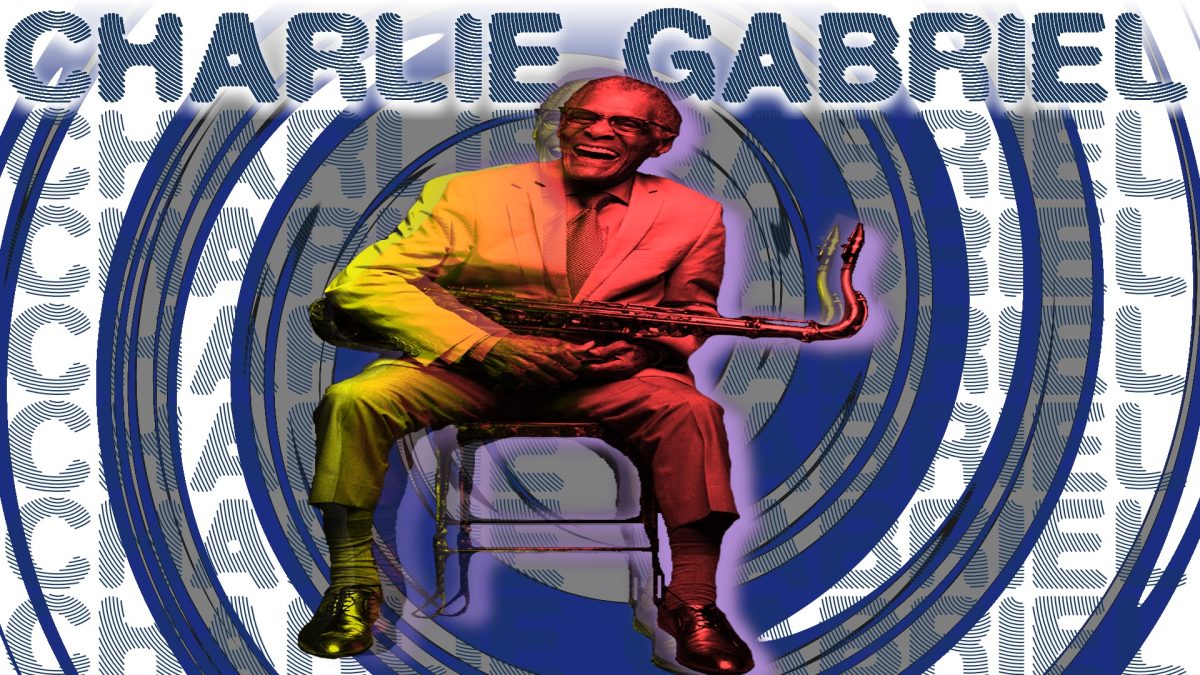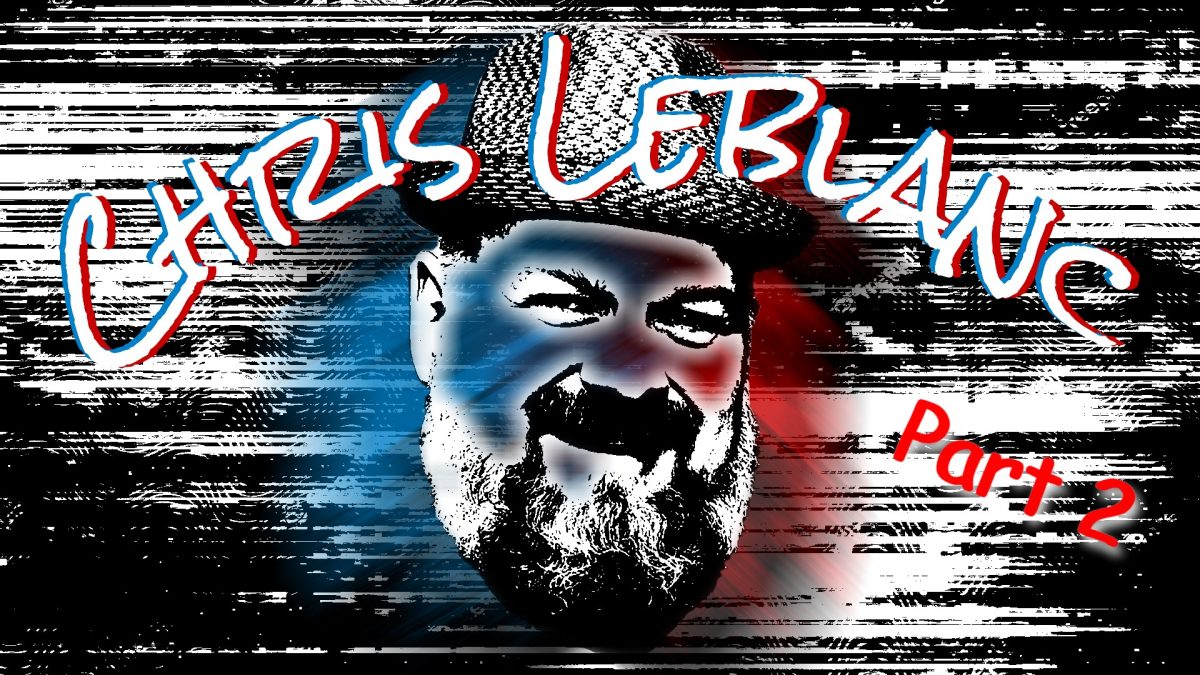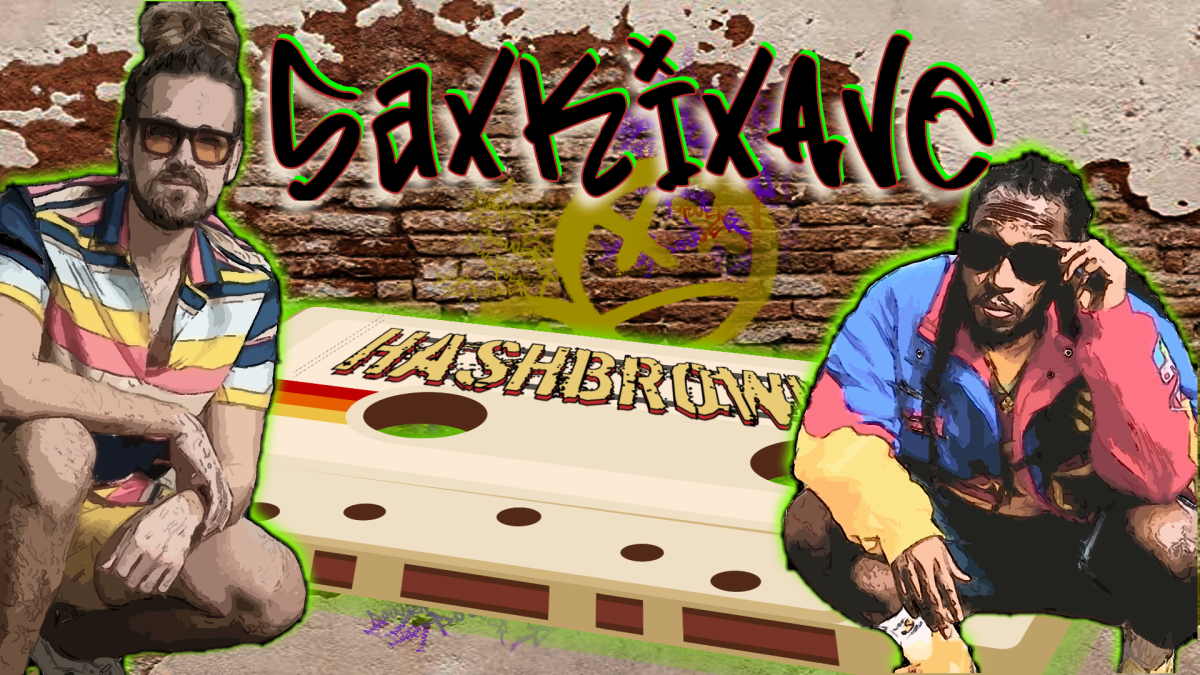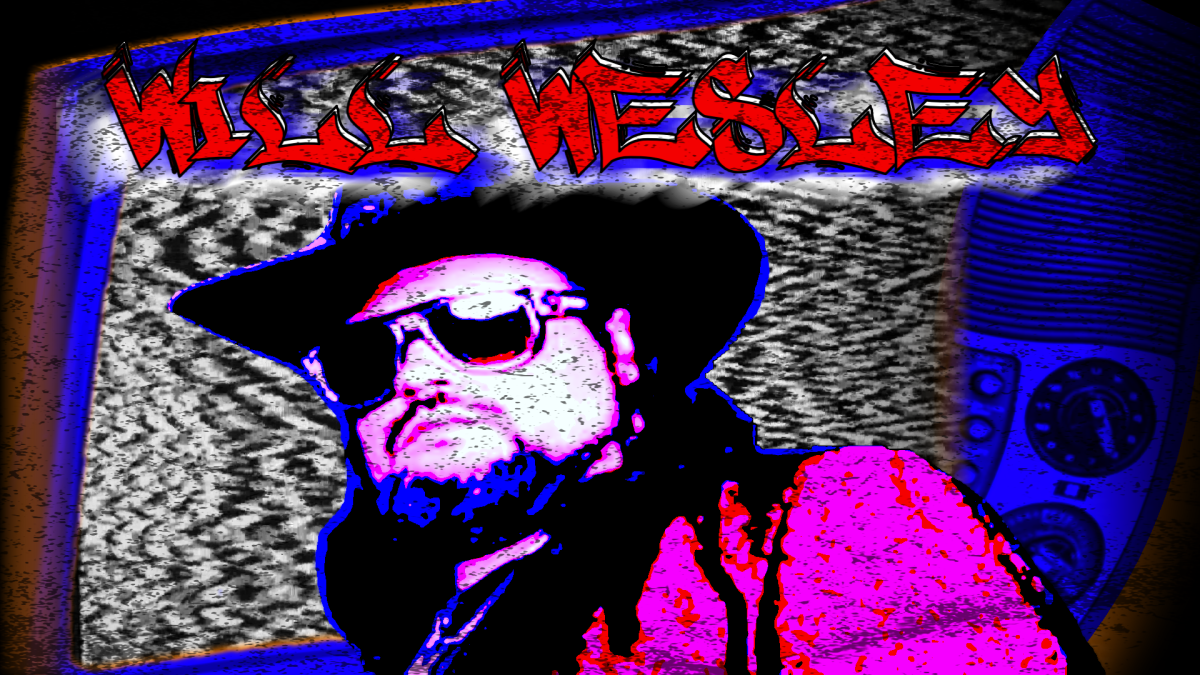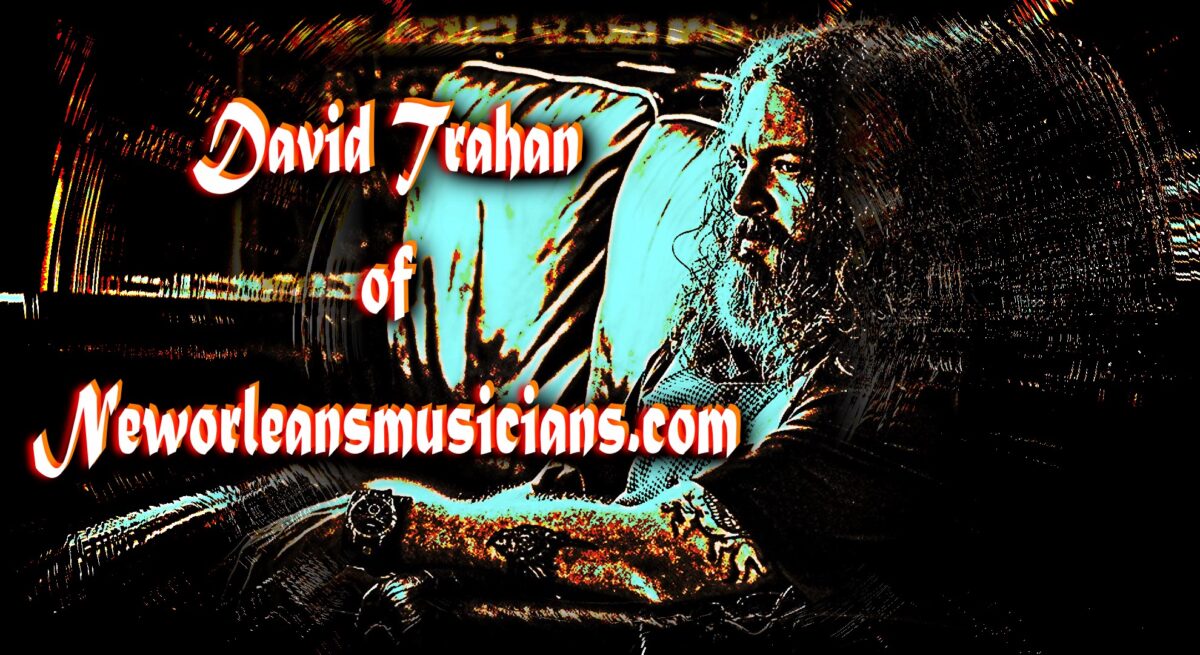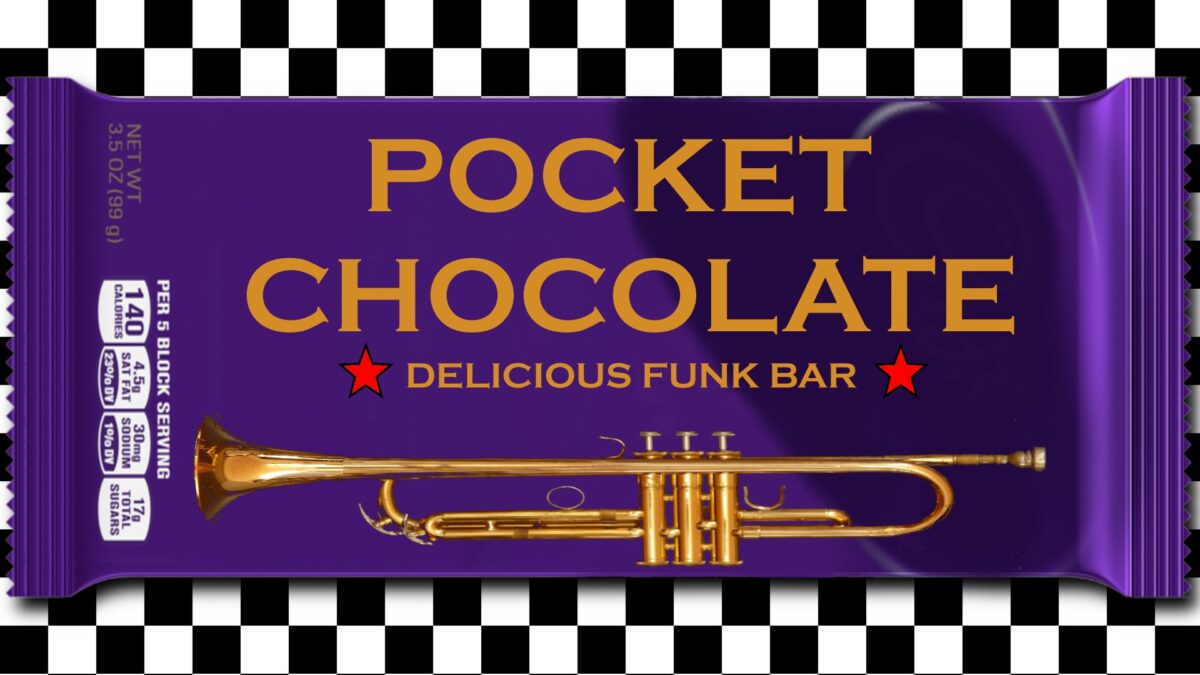Though this culminates in the genesis of the documentary titled Zydeco by Birth, our story takes place believe it or not, up in Washington D.C. where a local radio DJ began taping live performances in the early 90’s. He was such a fan of the rhythm and blues artists that frequented the circuit that he too became a staple in the area. His radio show, The D.C. Roots of Music, gave him a platform from which to explore publicly the town’s music and the correlations between it and the world of music at-large. And both the tapings and his radio presence became a soapbox of sorts for the validation and preservation of his passion. Big Joe and the Dynaflows, Steve Jacobs, Jeff Sarley, and Kevin Mcendree were some of the coals fueling the hotbed of D.C. at the time. And it irritated Wayne to see patrons give the cold shoulder to a measly three-dollar cover charge to see these bands play. Not only that, but D.C. not being recognized as a music scene of any real importance really got under his skin. Wayne always saw D.C. as the great unrecognized. It was known to musicians in certain circles as a place of musical significance. But if you asked someone to name the major locations for music in the United States, D.C. would never come up. As Wayne points out, “If you said, ok, what does Ellington mean to jazz? He’s not jazz. He’s this big wave that comes across the culture of music. What does Charlie Byrd mean to the introduction of Latin jazz to the country and the world? What does Marvin Gaye mean to male singers? What do Patsy (Cline), Emmie Lou, Mary Chapin, and Ruth Brown mean to female singers? What does Link Wray mean to a whole wedge of rock and roll guitar? What is bluegrass without D.C.? It doesn’t exist the same way. D.C. is known for go-go. New Orleans is big on go-go. But I sit and hear Nile Rogers and George Clinton say go-go is a jumping-off point for hip hop and rap. So, there’s a whole other wedge and thing. But D.C. is not known as a music town. And that’s part of the soapbox. That’s the soapbox.”
To capture players in the small rooms that filled him with joy felt as a preservation effort to Wayne. And to deliver its contents to those outside of the area, he thought, might raise awareness for the scene and lend it some validity. And so it began, meagerly at first, with a small Boss six-channel mixer and a promise to the musicians that the tape would not travel. Rather, it would serve as work tape for them. Eventually Wayne began hearing things he thought others should get a chance to hear, and he worked it out with the musicians to put together a CD of live performances. He started a record label, Right on Rhythm, and The Blues You’d Hate to Lose, Vol. 1 would be his first CD. Through a chance meeting at a party in New Orleans, Wayne met a zydeco musician by the name of Roy Carrier. The two recognized each other from previous zydeco shows in D.C. One of the people he was able to give that CD to at the party was Roy Carrier. Wayne passed it off to him as a who’s-who of current D.C. players, saying that it might help him next time he was up there performing. Roy, in turn, asked if Wayne could show him around and make introductions next time he was there. The two would stay in touch and Wayne would come to put out five CDs, many of which contained Roy’s performances in D.C.
Prior to this encounter, Roy discovered his music had been published and was for sale on retail shelves while visiting England. Now, it is true that he was at one time on a label by the name of Lenore Records. But he had a falling out with the label head, Lee Laverne, upon learning of the unauthorized use and sale of his work. The friendship, and subsequent alliance, he would form with Wayne would ultimately lead both Wayne and Roy down a path to discover how Roy’s music made it all the way to England without his knowledge. As it turned out, when Lee Laverne passed away, the contents of his estate would come to include Roy’s work. They would also include licensing agreements for Roy’s work made by the late Mr. Laverne. Illegitimately so, because Roy never signed over rights to his work; more specifically, the songwriting copyrights. When the studio was purchased, Roy’s work was simply assumed as a rightful possession by way of sale. And though neither Lee Laverne nor his estate owned the proper licensing, the physical tapes were in house and the fraudulent licensing agreement on record. Had Wayne not began recording Roy, the circumstances would have remained obscured and unjust. But since Wayne and Roy had formed ties, Wayne would uncover the details, successfully pursuing rights for Roy legally. And Wayne’s label, Right On Rhythm, would become the publisher for all of Roy’s material. “What it turns out is Lee Laverne assumed most of Roy’s copyright without the signature. Only the first seven songs had something resembling a signature, but it wasn’t really. But there’s dozens of songs after that, that Lee assumed publishing on. And that you cannot do. So, they (the publisher in England) were without legs to stand on. But what had happened is Lee Laverne had licensed these songs to Peter something-or-other in England for his record label (Zane Records). And he put those CDs out. So, Peter though has worked the CD. He’s the one that connects (licenses) a song on there, “My Baby Wants to Leave Me”, to Uncle Ben’s rice for a commercial.” Right On Rhythm would later be acquired by The Smithsonian Folkways Recordings, a division of the Smithsonian Institute. And Roy’s work would forever be cemented in the annals of cultural audio history.
And rightfully so, because Roy was the last connection within a select few families of historical zydeco importance; Broussard, Dopsie, Chenier, Ardoin, and Carrier. Within the generations of these families were the original performers of the genre; Roy being one of them. Born out of creole and blues influences, Zydeco encapsulated not only a style of music, but a way of life. It has always been the music of families that worked the land and struggled through poverty. It marked occasions when families would come together, telling stories of their experiences in southwest Louisiana. And the Carrier family’s history of involvement around that music spans its entirety. In the late 90’s, Roy eldest son, Chubby, was befriended by a man named James Anderson that took interest in the family’s history in zydeco music. Aided by a camera crew, James followed the family throughout southwest Louisiana and to other locations gathering footage with the intention of making a documentary. Being Roy’s publisher, Wayne was incorporated into this process. But over time the project lost all furtherance and was shelved. Nearly twelve years later, when Roy passed away in 2010, Wayne contacted James to inform him of Roy’s death. James was still in possession of the gathered footage and would ultimately send it, in its entirety, to Wayne. Wayne believed in the project and was well aware of its importance. But he had no idea what to do with its contents. When his label, Right On Rhythm, was acquired by Smithsonian Folkways Recordings Wayne turned the boxes of tapes he had received from James over to them. He felt as though they would be safe there, and that possibly they could do something more with them. Years went by, and as they were previously in James’ possession, the tapes never developed into anything more than a box on a shelf. In 2021 Wayne reached out to the Smithsonian Folkways, convincing them to return the material. These boxes of VHS and Beta tapes were a veritable goldmine. They didn’t just contain performances. They encompassed moments in time from twenty years ago of a keystone in the world of zydeco. There were interviews with a semblance of characters that beckoned viewers to peer into the social graces and presence of a culture on this earth. Some of these folks are no longer with us. Like a 92-year-old Bebe, seen in his nephew Calvin’s living room with others playing Blue Runner; a classic linchpin between Cajun and Creole heritage. And others had gone on to achieve great status. Like Chubby Carrier, who won a Grammy for “Best Zydeco or Cajun Music Album” with his album Zydeco Junkie in 2011. And in fact, Roy himself garnered a posthumous induction into the Zydeco Hall of Fame. And Goldman, Roy’s cousin, was inducted into the Order of Living Legends, a special recognition by way of the Acadian Museum. The relevance of these tapes to the artform as a whole had only increased over time, tying the present to the past.
Most things aren’t truly appreciated at face value. They can’t be. Vast spans of time and territory are sometimes reduced to symbolic imagery and a “that’s what they say”. But what any good documentary will prove is that there’s more to the story. It will illustrate the significance of its subject matter. And it will explode and examine all the moving parts that represent something that might have otherwise come to rest in a box on a shelf. Zydeco by Birth has become the name of one such box and will hopefully become a documentary that amplifies a microcosm rich in cultural heritage. Through a closer look at the social fabric of southwest Louisiana, viewers will know what others have not known and see what others have not seen. With this expounded perspective, they will come to appreciate the true meaning behind the Carrier name. Unable to lay it to rest, Wayne Kahn is on a quest to make the Zydeco by Birth documentary a reality. To hear all of this in greater detail and in his own words, you can listen to our interview using the podcast icons below. And if this is something you believe in, you can follow the links provided to help him in his journey. Any tips or advice, relevant contacts, or even a few dollars to his crowdfunding efforts are a few of the many ways you can contribute.
Author: David Trahan
Gofundme link
https://www.gofundme.com/f/zydeco-by-birth-documentary
Zydeco by Birth Trailer
WOWD-LP Takoma Park Community Radio 94.3FM




















